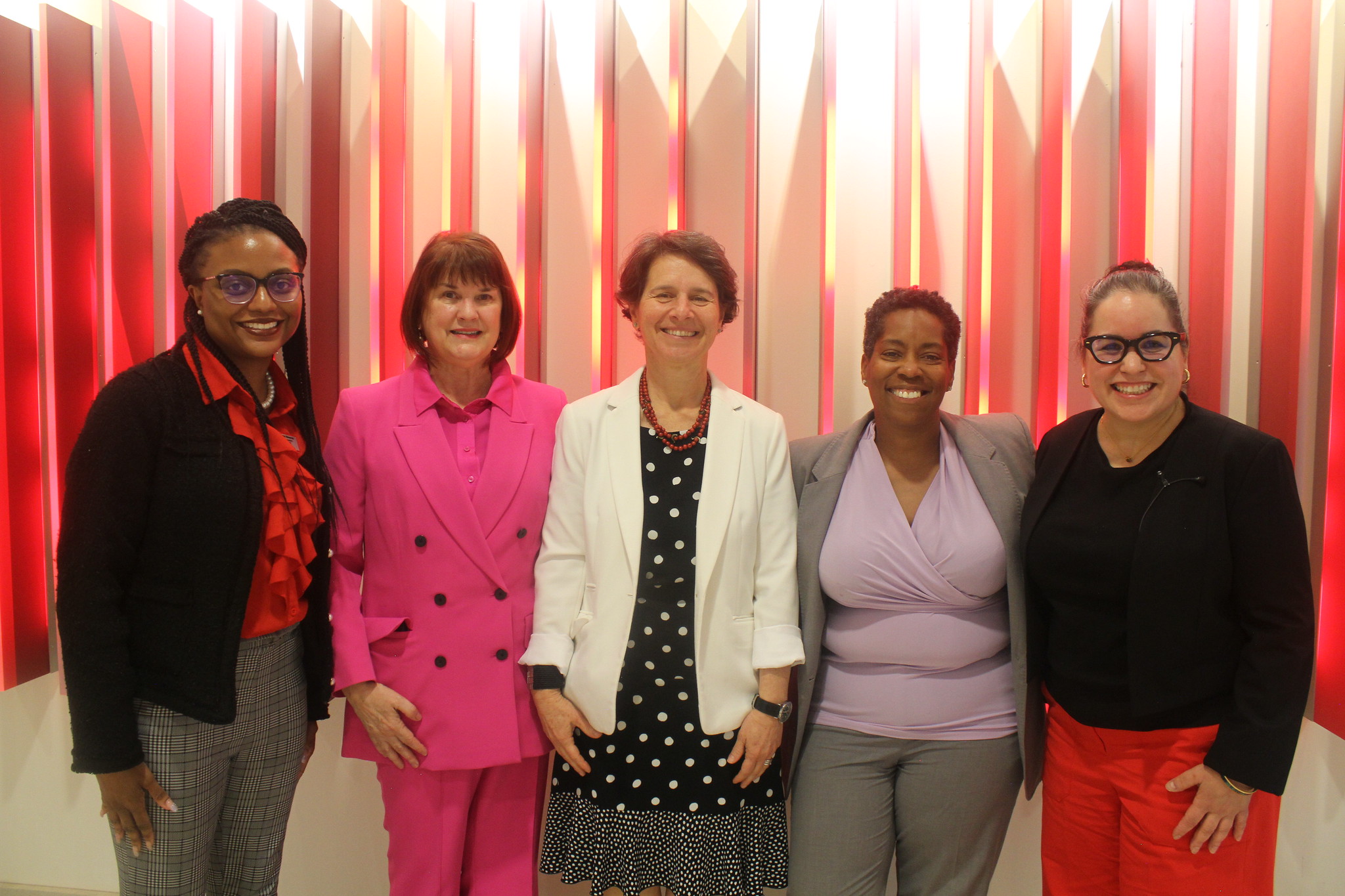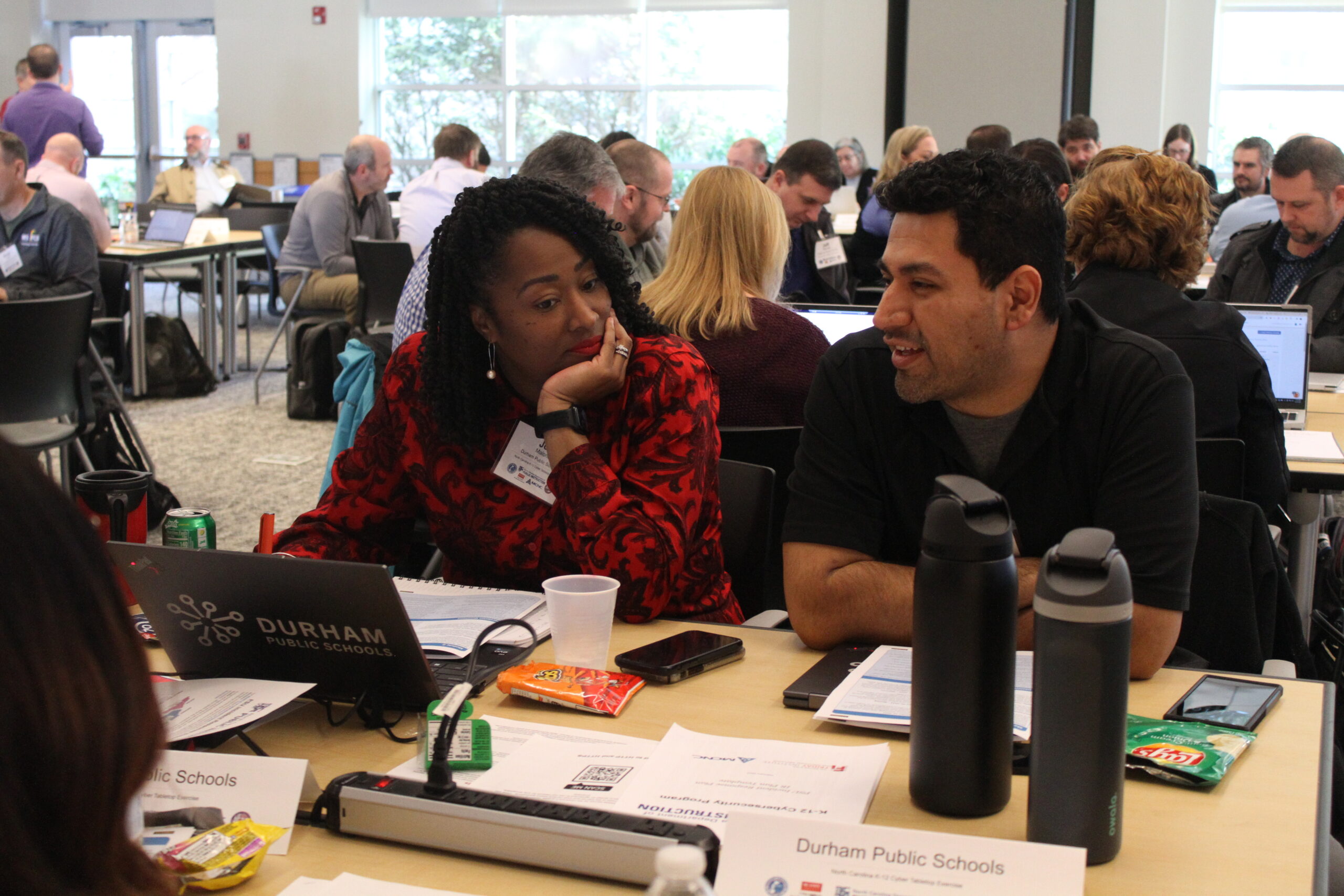Read to Achieve: Understanding the Foundation of Learning
April 18, 2013 – What does the Excellent Public Schools Act mean for teachers and students? This was the theme of the New Literacies Collaborative Spring Symposium co-sponsored with the NC Department of Public Instruction at the Friday Institute for Educational Innovation yesterday.
“Reading is foundational for most of what we do in academics as well as in life,” said Dr. Hiller Spires, professor of literacy and technology and co-director of the New Literacies Collaborative. “Providing strong support for early reading is essential to a vibrant and successful educational system in North Carolina.”
Participants spent the morning outlining North Carolina’s new program, Read to Achieve, part of the Excellent Public Schools Act, and talking about the implications for teachers and students as the law will take effect for the 2013-14 school year. The new law requires all students to pass the state’s reading test by third grade.
“The Read to Achieve law is an opportunity for early childhood educators to be proactive and focus attention on the development of solid reading foundational skills and the use of interventions to scaffold learning toward meaningful comprehension for all students,” said Carolyn Guthrie, DPI Literacy Director.
After implementing a similar policy in Florida, the group was joined by live videoconference with Dr. Barbara Foorman, Director of REL and Florida Center for Reading Research, and Kevin Smith, Research Alliance Manager, REL Southeast. Foorman and Smith stressed the importance of early reading interventions in K-3 to help students succeed later in their schooling.
“Research consistently highlights the benefits of early reading intervention efforts for students, and the implementation of high-quality early interventions will be one key to the success or failure of Read to Achieve,” said Dr. Steve Amendum, assistant professor of elementary literacy.
Break out sessions of the symposium included small group discussions on best practices in: early literacy intervention, literacy coaches and summer reading. These discussions were lead by NC State faculty and graduate students, as well as, teacher leaders in local elementary schools and educational administrators.
“Summer reading loss is a huge problem; some argue the cumulative loss across elementary school is more than a grade and a half (compared to those who do read consistently),” said Dr. Kristin Conradi, assistant professor in K-12 literacy and facilitator at the session on summer reading. “How we as a state proceed with summer reading programs is critical if we are serious about closing the achievement gap.”
The role of literacy coaches was also discussed as an essential element in the success for Read to Achieve. “It is clear from research that when teachers benefit from high quality coaching, literacy instruction improves and student achievement increases,” said Dr. Angela Wiseman, associate professor of elementary literacy and facilitator of the session on literacy coaches.
The Excellent Public School Act was passed in the fall of last year and is designed to improve literacy for students in kindergarten through third grade. The Department of Public Instruction will have traveling summer institute presentations to ensure the information and assistance reaches the entire state.
The New Literacies Collaborative is comprised of a multidisciplinary team of researchers and educators who promote research, teacher professional development and global connections through new literacies. Click Here for more information on the New Literacies Collaborative. Click Here for more information on Read to Achieve.


